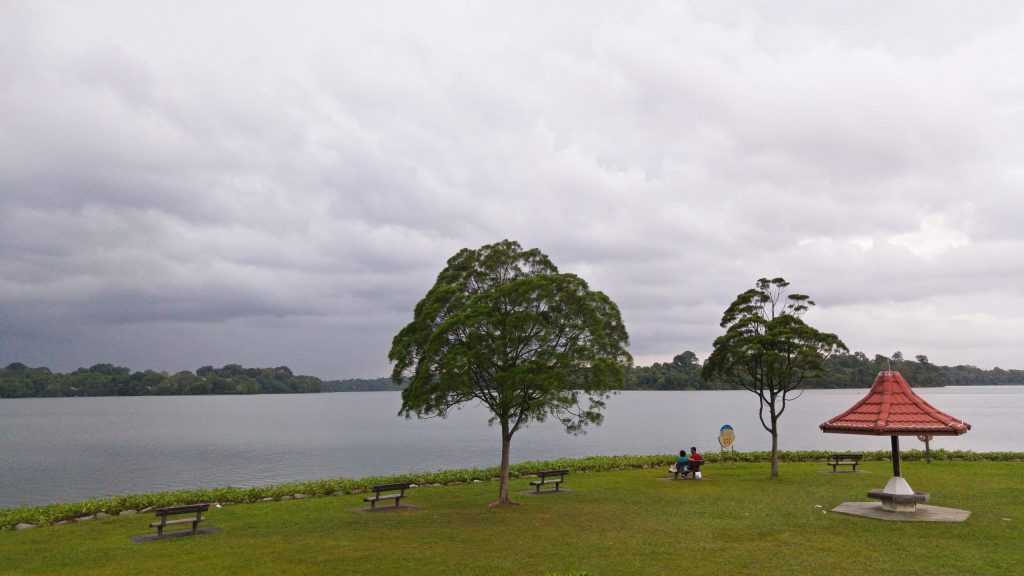Hybrid Governance of Transboundary Commons: Insights from Southeast Asia
September 25, 2021

The haze is a well-known environmental problem that has become a regular occurrence in Singapore and the surrounding region. Transboundary haze in Southeast Asia is most often caused by forest fires in Indonesia and often poses significant disruptions to people’s daily lives. These fires are largely the result of industrial slash-and-burn practices by multinational corporations. In September 2015, Singapore’s Pollutant Standard Index (PSI), which indicates daily air quality, reached unhealthy levels. This prompted the Ministry of Education to close primary and secondary schools in Singapore on 25th September 2015.
Since then, much inter-institutional work has been done to reduce the occurrence of haze pollution in the region and to mitigate its effects. A concerted regional effort to tackle the haze problem was introduced in 2002. This was the ASEAN Agreement on Transboundary Haze Pollution.
In “Hybrid Governance of Transboundary Commons: Insights from Southeast Asia” (Annals of the American Association of Geographers, 2020), Dr. Michelle Ann Miller (NUS Asia Research Institute), Dr. Carl Middleton (Chula Centre for Social Developmental Studies), Professor Jonathan Rigg (UOB School of Geographical Sciences), and Professor David Taylor (NUS Asia Research Institute and Geography) notes that there are a set of environmental goods that transcend territories and national boundaries. The authors argue that examining power relations between the different actors within Southeast Asia will provide us with a clearer understanding of how these transboundary environmental goods are perpetually shaped through hybrid governance.
The authors point out that governments currently do not have the capacity and flexibility to respond to large-scale environmental crises. As a result, new ways of thinking about climate change, scarcity, and loss of biodiversity are required to keep up with environmental changes. Hybrid institutions are, therefore, the answer to governments’ limited capacity. This, however, requires key actors to prioritize the common environmental good over a small number of individual private interests.
A single, independent government dealing with transboundary environmental issues is an inadequate solution. Transboundary commons refer to a class of environmental goods that transcend administrative territories, jurisdictions, and nation-states. The authors assert that we need a form of environmental governance that consists of various networks and institutions all over the world organizing and coordinating with each other to manage transboundary common goods.
Drawing on an extensive bank of case studies from the Southeast Asian region, the authors cite Singapore’s 2014 Transboundary Haze Pollution Act as a prominent example of shaping power relations through the process of transboundary commoning, which refers to adopting a more dynamic view of the property and sharing ownership and responsibility among multiple stakeholders for goods that transcend the boundaries of nation-states. Singapore’s legislative move holds culprits that produce haze pollution accountable while shifting the blame away from neighboring countries, reducing tension between Southeast Asian nation-states. A win-win solution that at the same time, restructures power relations among the key stakeholders.
In Southeast Asia, environmental governance is shifting towards commoning. This is observed by the co-optation of markets and other stakeholders in environmental governance. By examining power relations within the region, one is offered a better understanding of how transboundary environmental goods are managed and used. The authors propose a further investigation into the potential of hybrid environmental governance, and in doing so, hope to lay the theoretical foundations upon which later models of hybrid governance are built in the region, and around the globe.
This study was funded by Prof Taylor’s Social Science Research Thematic Grant, “Sustainable Governance of the Transboundary Environmental Commons in Southeast Asia”. The research aims to deepen the current understanding of the major issues in the sustainable development of Southeast Asia’s ecological commons, and to improve environmental policy work in Singapore and Southeast Asia. In the long term, “Sustainable Governance of the Transboundary Environmental Commons in Southeast Asia” ultimately aims to contribute towards global efforts in mitigating the effects of global heating.
Read the article here
